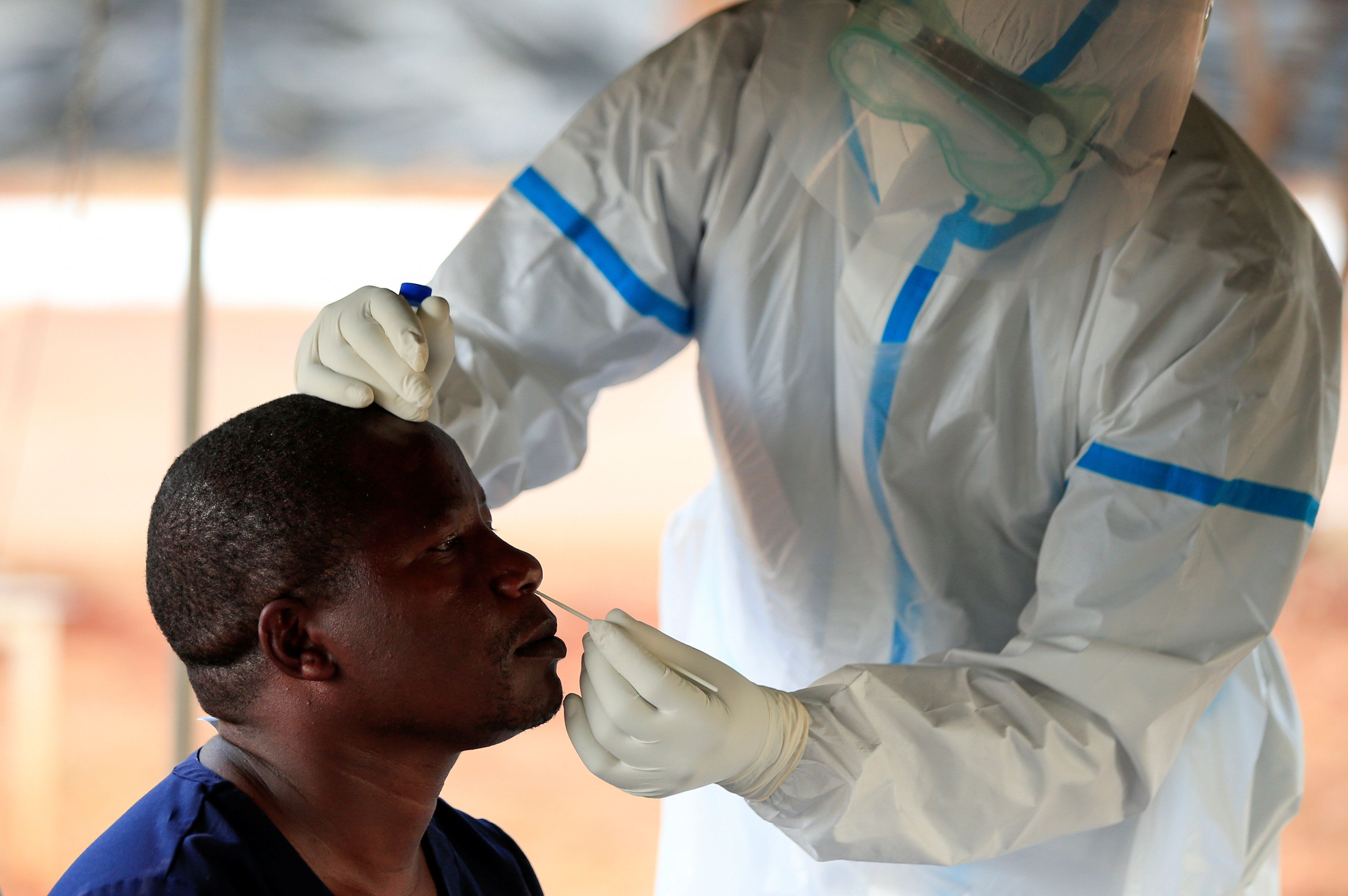Science & Tech
May 04, 2020
Zimbabwe pleads for aid: Zimbabwe's government has appealed to international creditors for urgent help as it battles a rising COVID-19 caseload while lockdowns push its ailing economy to the brink of collapse. International lenders including the IMF and World Bank have snubbed the southern African country ever since it defaulted on debt repayments some two decades ago. Even before the pandemic, Zimbabwe's economy was in terrible shape as a result of decades of corruption, economic mismanagement, and recurrent droughts. The country's inflation rate is nearing 700 percent, and more than half of its 15 million people depend on food aid to survive. The government has reportedly appealed to organizations including the African Development Bank, European Investment Bank and the IMF to "normalize ties" and find a way to clear its old arrears so it can access urgently needed funding. But with demand for financial support surging as the pandemic plunges developing countries into unprecedented economic crises, it's unclear whether these international organizations will acquiesce.
An economic boost for Gaza: The coronavirus crisis has exposed political rifts between states, but it has also provided opportunities for cooperation between unlikely partners. This is precisely what's playing out between Israel and the Gaza Strip, where Israeli PPE merchants have flooded Gazan manufacturers with orders they can't fill quick enough. The demand has been a boon to the garment industry in Gaza which has long struggled to export reliably through tight Egyptian and Israeli border controls that were imposed after Hamas took power in the enclave in 2007. Many Gaza-based manufacturers are now hiring fast to meet the increased demand and have so far produced millions of masks and tens of thousands of gowns. But as the virus will pass, so too will the demand for protective gear. Israeli rights groups have called for the permanent easing of restrictions that govern entry in and out of the Gaza enclave, home to some 2 million people, so that the economy can function more normally even after the pandemic.
Bangladesh's garment factories reopen: After an eight-week hiatus, more than 2,000 garment factories in Bangladesh have reopened, causing thousands of people to crowd public transport and flood the streets of Dhaka, the capital, much to the chagrin of health experts who say the move is premature and puts low wage workers at risk. Bangladesh's COVID-19 caseload has surged in recent weeks, and now exceeds 10,000, likely a significant undercount because of its poor testing capacity. Indeed, for Bangladesh's leaders, it's a catch-22 between economic health and public health. When factories shuttered in March, around 1 million Bangladeshi workers lost their jobs, and the country, the world's second largest apparel exporter after China, has lost over $3 billion in export revenue. In a country where poverty is already widespread (one person in five lives below the poverty line) the economic fallout from the pandemic alone could be catastrophic. But prematurely sending workers back to crowded factories could fuel a surge in cases that would overwhelm the country's feeble healthcare system and prolong the crisis even further.
More For You
With close ties to both the US and China, can Singapore survive in an increasingly fragmented and chaotic world? Singapore’s President Tharman Shanmugaratnam joins Ian Bremmer on the GZERO World Podcast.
Most Popular
Think you know what's going on around the world? Here's your chance to prove it.
UK Prime Minister Keir Starmer shakes hands with Chinese President Xi Jinping, ahead of a bilateral meeting in Beijing, China, on January 29, 2026.
Carl Court/Pool via REUTERS
This week, Prime Minister Keir Starmer became the first UK leader to visit China in eight years. His goal was clear: build closer trade ties with Beijing.
Igmel Tamayo carries charcoal to sell on the side of a road for use as cooking fuel in homes, after US President Donald Trump vowed to stop Venezuelan oil and money from reaching the island as Cubans brace for worsening fuel shortages amid regular power outages, on the outskirts of Havana, Cuba, on January 12, 2026.
REUTERS/Norlys Perez
© 2025 GZERO Media. All Rights Reserved | A Eurasia Group media company.
